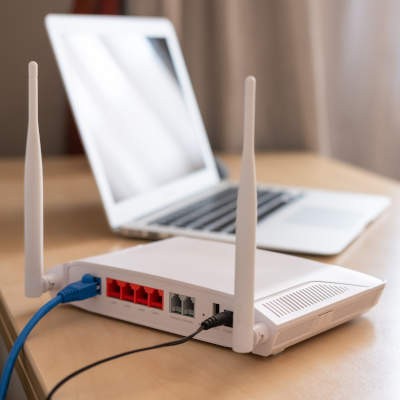Network hubs, network switches, network routers… What does it all even mean? All of these devices and terms can be confusing, and to some, they might even be interchangeable. However, the fact remains that they all serve different purposes, and some might not be the right solution for your business’ needs. Today, we want to break down the differences and when you might consider one over the other for your infrastructure.
Datalyst Blog
If it has been a few years since you have made any changes to your office’s wireless network, you and your employees may have noticed that it’s starting to feel a little slow in comparison to other types of network connections. No, it’s probably not your current Wi-Fi access point going bad, but it’s likely that it’s struggling to handle the office environment you have today, versus the office environment you had back when it was first installed.
How much does your business rely on its Wi-Fi connectivity? If it’s like most, the answer is almost certainly quite a bit. There is no denying that Wi-Fi is a staple in modern workplace processes, but at the same time, it can also prove to be a major security liability if the proper steps are not taken. Therefore, it’s beneficial that you take these steps.
Any business that depends on its IT—in other words, most businesses—needs to consider the cybersecurity that is in place to protect it. Today, many businesses have started focusing their cybersecurity efforts on protecting their network from the edges, an approach that is fittingly known as edge security. Let’s take a moment to talk about the benefits that edge security can offer you.
If you find yourself frustrated with the speed and reliability of your office Wi-Fi, you aren’t alone. Even though the technology has been around for a decade and a half, it hasn’t always been a perfect solution. Modern wireless solutions have evolved a lot over the last few years, so if you are dealing with slow, unreliable connections, it’s likely time for an upgrade.
Sometimes you might encounter situations where your network is limited in the amount of data it can process at any given time. The unfortunate truth is that it can be difficult to identify exactly what the problem is that is causing the slowdown, but one of the most common issues—the network bottleneck—is a pretty safe bet. But what exactly is a bottleneck, and what can be done to solve it?
2020 was a contentious—and for the wireless industry, momentous—year. Marking the official start of 5G networks, 2020’s events amongst mobile providers helped to reinvigorate an industry, while making some considerable shifts in the balance. Let’s consider some of these changes, and how the industry will continue to change for some time moving forward as 5G continues to grow.
As businesses across Massachusetts start to reopen over the next weeks and months, it’s important to be aware of the health of your IT infrastructure as you start to come back into the office. Things are going to be different moving forward, and you may need to adjust your network in order to handle it.
Data is one of a business’ most important assets, and as such, it needs to be kept in such a way that it remains organized and utilizable. This has led to widespread use of databases in businesses, which has necessitated the use of database management systems. Let’s take a closer look at these systems, and why they are so crucial.
Businesses require a lot of their Internet connections, especially if they’re using technologies like VoIP, screen-sharing, and/or webinar platforms. If you’re looking to incorporate these features, you need to be sure you have enough bandwidth to support them. We’re looking at a few reasons that your bandwidth matters, and how to tell if you have enough for your needs.















